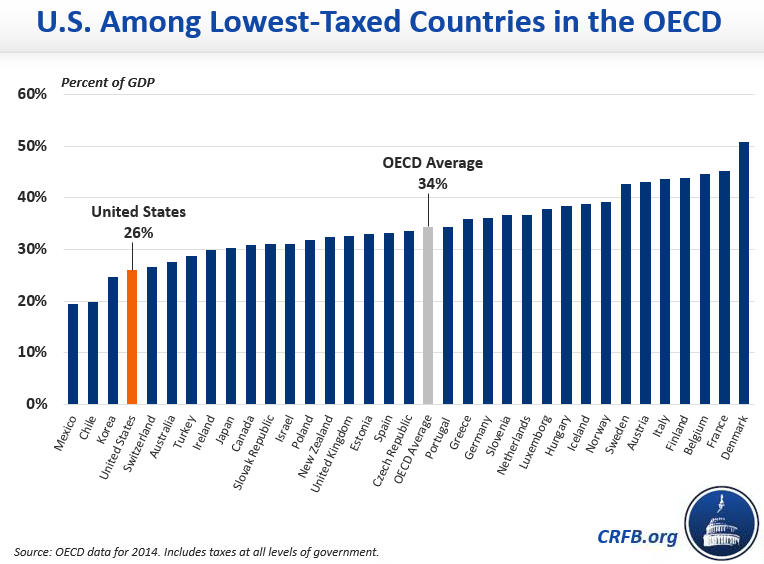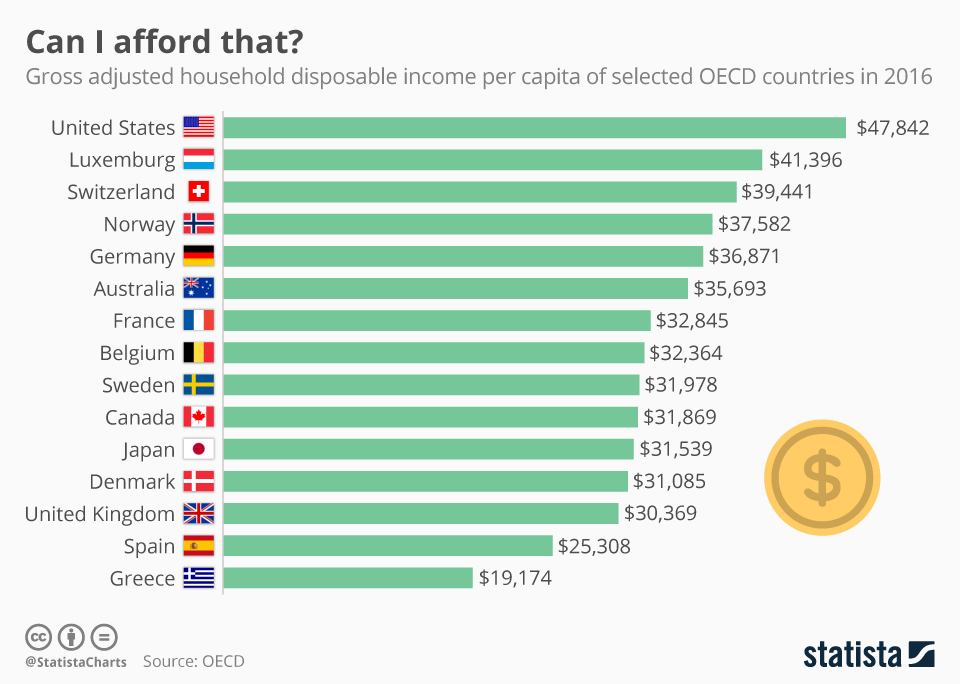Declining fertility rates among developed countries has been a subject of intense debate online for years. The debate generally falls into one of two camps: that the decline, particularly in the U.S., is due to political/economic factors, or due to individual social factors.
My money is strongly on the latter, that Americans are choosing to have fewer children even though they can easily afford to have more. It’s not a broad-based economic problem, but rather an individual one. This is also why the ‘Orban plan’ of incentivizing having children will not work in the U.S., because money is not the problem, but rather young, middle-aged people forgoing parenting for the attainment of wealth and other signifiers of social status. Status is by definition always scarce, as some will always have more than others, whereas social programs are only good for pulling up the bottom, not ‘keeping up with the Joneses’.
Indeed, it’s well-established that the correlation between fertility and national wealth obeys an inverse relation:

In the U.S., it’s more of a u-shaped relation, but the trend of poorer families having more children, generally holds:

This suggests money is not the problem, nor the solution.
This show the U.S. has among the lowest of income taxes among developed countries:

Even after factoring state taxes, Americans pay less than most developed countries. Also, most Americans have employer-sponsored healthcare, which also covers childcare, which is a double-bonus in addition to low taxes. Due to these factors, combined with high wages, Americans have considerably more disposable income compared to the much, if not all, of the developed world.

Americans are pretty wealthy and can afford a high standard of living by almost any objective measure. The belief that taxes are holding back American prosperity or the ability to have children, does not seem supported by evidence.
If I had to diagnose the epidemic of childlessness, the problem is careerism and hypergamy. It’s not enough to settle for a $60-100k single income, you got to have a $150-200+k double income. Or young women delaying family formation for 4 years of undergrad, 4 years of graduate school, followed by a couple years of interning. There are many posts on ‘FIRE’ subs of double-income, childless households (so-called ‘DINKs’) that have a lot of money, enough to easily retire off of and have a large family, but they keep working and accumulating money, for some unforeseen apocalypse perhaps? Who knows. If the goal is optimize one’s life for the accumulation of money, delaying family formation for as long as possible is necessary, but with it comes falling fertility rates. The thing is, and why this problem is so intractable, is that these DINKs are acting rationally and seem to be enjoying life, from what I have observed. It’s not like they need kids to fill an emotional void; work and money fills that void.
It’s like when conservatives cite studies of how religious people are happier, suggesting that religion is necessary for happiness. It’s also possible that people who are overall predisposed to being happy seek religion, not that religion creates happiness. The same could be said for family formation.
Also, there is so much aid for poor American families, much more so than individual welfare (which is comparably paltry). So the economic incentive structures already exist for family formation. Poor Hispanic families have no trouble taking advantage of these programs, whether it’s public school lunches, food, medical care, or even college. Go to McDonald’s, particularly in ‘red state’ or poorer ‘blue state’ neighborhoods, and it’s nothing but obese, well-fed ‘poor’ families with iPhones. Somehow they are able to enjoy a higher living standard than 99.5% of the world even while having children. Go to any major food store chain in the U.S., and without fail there are fundraisers or some sort of charity at the entrance for donations for children’s hospitals and related causes. Not once has any child in the US been denied primary of secondary education, healthcare, or college because of an inability to pay.
Among the middle/upper-middle-class, until it is seen as equally socially desirable to have children as it is to accumulate money, I don’t see this changing.
Some excellent points. I would add it isn’t a matter of meeting basic needs, but wanting the child to excel. This entails private school, extracurriculars (sports/ballet, etc) and college tuition. No upper middle class family is satisfied with government schooling, McDonald’s and planting the child in front of the iPad/iPhone. Therefore even when family formation occurs, it is below replacement level.
I’ll add head over to financialsamurai to take a look at sample budgets, going broke on 300k budgets is certainly an eye opener
I think the conflict with Russia/China is becoming more obvious as feminism vs. patriarchy. But do Russians and Chinese have more children?
Probably another indicator of child-bearing capacity is conscientiousness. If a man can beget children without responsibility then he has the opportunity to reproduce at a higher rate. Sperm donation, for example, seems to produce children from higher status males.
There are men who are not interested in raising their children. They have children through multiple partners. They could be lower status welfare recipients or Hollywood movie stars.
Conscientious men are less inclined to do so in a feminized culture. They want to raise their own kids but feel responsible and are hamstrung.
In my opinion Gov shouldn’t be subsiding childcare and other incentives just like that. Let the people take care of that themselves. Keep taxes and other surcharges low. Let the population return to more sustainable levels.
And suppressing crime. Also make sure that the family courts are Just and not unjustly biased against Fathers and Husbands that they currently are.
Sometimes I think you like to be a contrarian just to be a contrarian, but then you back your position up pretty well. Not so, here.
Couples that put off having children do so until their more stable or have a house. They wait to have children later but they still have them, so they’re not driving down the fertility. It’s people who’ve completely forgone having children altogether. These genetic deadends arent exactly accumulating masses of wealth either. They’re opting to scrape by and spend most of their time on leisure. Reason being, equality. The downstream effects of this are lopsided divorce courts, promiscuity, and major government subsidies for women. Roughly 80% of all welfare goes to women. To understand why, you need to understand the nature of men and women. You could delve into the psychology, but basically women have babies and need to be protected.
Fundamentally, women are more valued, but men are more useful. Men are seen moreso as replaceable utilities whereas women are seen as irreplaceable, atleast in youth. Ergo women have a bias for women and men have a bias for women. The end result is government preference for women. With all these government programs and bias’ the government has effectively replaced men. Now instead of being provided for by one man, all men collectively provide for her. She can then choose to be very picky and wait it out for the perfect specimen. Sometimes successful, other times not. Female nature and democracy are a deadly combo and unless you fulfill a carefully curated list of criteria all women somehow astrally agreed upon, your not passing on those genes.
Also, women do suffer for not having kids. Their motherly instincts kick in and this can make some of them crazy. It’s also seen in other mammals.
But idk I’m probably wrong, this is just the usual arguement I’ve heard: female rights, big gov, degeneracy, lower births, replacement.